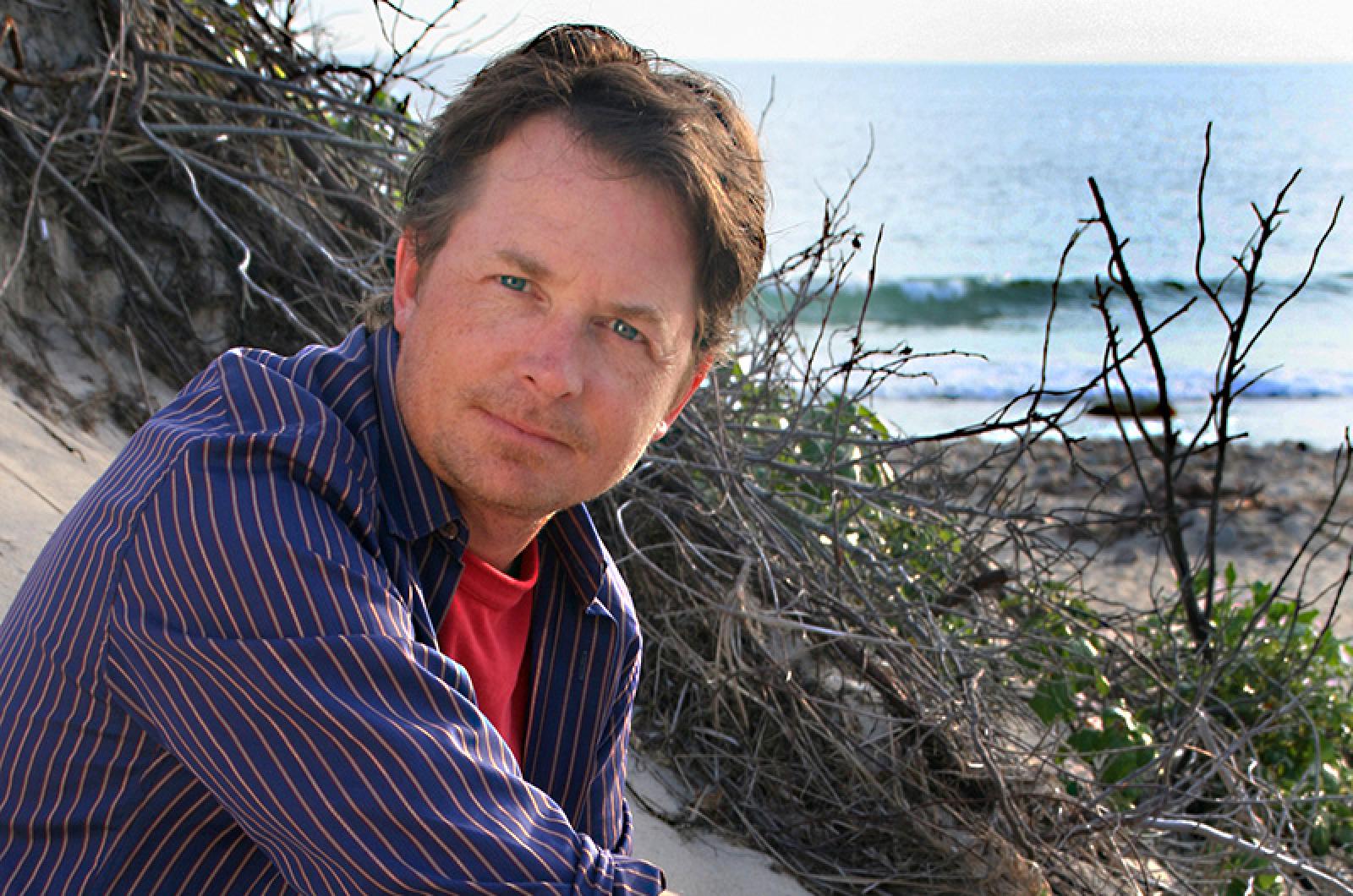For Michael J. Fox, optimism has not come easily. The renowned actor and longtime Vineyard seasonal resident, who has been living with Parkinson’s disease for nearly half his life, has made it his mission to live life on the bright side. But recently he’s been reconsidering.
“I got to a place where I said, who am I to be Mr. Optimism,” he told an overflow crowd at an online winter event hosted by the Martha’s Vineyard Book Festival Thursday night. “I started to really think about how I kind of held up optimism as a panacea and how I’d said ‘chin up’ to all these people whose misery I can’t even imagine.”
These are questions Mr. Fox tackles in his latest book, No Time Like the Future: An Optimist Considers Mortality, which charts the actor’s eye-opening journey through a string of recent personal challenges, including a near-paralyzing back tumor, a broken arm and, of course, his ongoing battle with the neurological disease.
On Thursday evening, he expounded on that journey with friend and fellow best-selling author Harlan Coben before some 2,400 people, including avid fans from across the country and around the world. The two old friends chatted jovially, covering a range of topics from Mr. Fox’s golfing career to his writing process.
“Parkinson’s and I have a deal. It stays and eats my brain as much as it wants to and at the same time it saves me a little room to do what I want to do and it all works out,” Mr. Fox began. “But then I had this tumor on my spine and it just knocked me down another level.”
The tumor, which was removed in a high-risk operation, left him in a wheelchair for months, slowly learning to walk again. But as with so many things, he took it in stride. “You take it and roll with it,” he said simply.
Then a few months later, when a bad fall left him all alone with a shattered arm in his New York apartment, he began considering the value of a positive outlook.
“Parkinson’s is one thing, it’s insidious, it just showed up and became part of my life and I didn’t do anything to make it happen, it just happened,” he said. “Same with the spine. The reason why the broken arm really pissed me off was that was my fault.”
“I went into this deep place to try to figure out, was I still optimistic? Could I still find some optimism in me and how would I find it? Where would I look?”
He said the book was initially intended as a memoir about life lessons he had learned through golf.
“Golf fueled some of the attitudes in life that are reflected in the book — particularly gratitude,” he said. “You just feel completely helpless, no matter how skilled you are, no matter how what you bring to it . . . but you just love the game.”
The book paints a vivid picture of Mr. Fox’s family and the role they play in supporting him. He described the ripple effect of his illness on those around him, noting the tension in his life between feeling strong and needing support.
“You think about illness or chronic disease, any situation where your abilities are compromised, it’s the people around you that it affects too,” Mr. Fox said. “Caregiving is a difficult position to be in . . . and when it takes a village for you to move around in life, it really hit me hard when I realized I may have let them down and disrespected their concern.”
He credited his wife Tracy Pollan for the solace she has provided him over the years. “Everything I looked at, I could see some reflection of her touch and her attention,” he said. Grinning, he also hailed Ms. Pollan for introducing him to another great love of his — the Vineyard. “I would have married you just for this,” he said with a laugh.
Near the end Mr. Fox answered a flood of questions from participants, many of whom shared personal experiences battling Parkinson’s and other chronic illnesses.
One asked about his research foundation, which has raised $1 billion for Parkinson’s research since its establishment in 2000. “I am optimistic,” the author said. “[But] I don’t personalize all this stuff too much . . . it’s its own thing, its own magnificent beast and it’s going to get the job done.”
He reflected too on the power of storytelling.
“I hope you enjoy the book — it’s truth and it’s passionate and it’s my story,” he said. “Everyone’s got their own story and everyone’s story is important.”







Comments (5)
Comments
Comment policy »